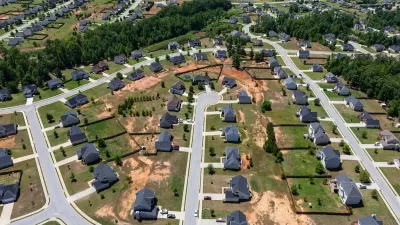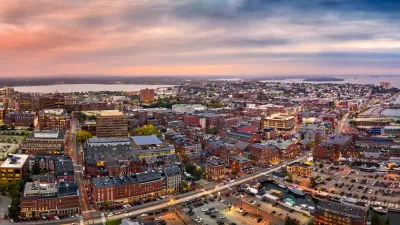The city council will vote on a proposal to eliminate single-family only zoning in favor of rules that would allow up to six units per residential lot.

“Vancouver housing could become radically more dense if the city allows up to six homes per lot for the half of its land traditionally reserved for single-detached dwellings, as council votes this week on whether to send the change to public hearing,” according to an article by Frances Bula in The Globe and Mail.
Under the proposed new rules, multi-unit buildings will be allowed to take up a larger percentage of lots than before. Theresa O’Donnell, Vancouver’s head planner, said “This is rezoning the 52 per cent of the city that’s effectively been off the table for years.”
If approved by the city council, the proposal will go to public hearing and could take effect next January.
“The city’s projections indicate that a single-detached-house property that sells for $2.8-million now could become home to four smaller homes that sell for $1.1-million apiece – still not cheap, but less than the single house,” Bula adds.
“Some housing advocates have criticized the new policy as being unlikely to get a lot of take-up because it will be much more challenging for average homeowners to finance a fourplex or sixplex, compared with a laneway house,” known as an accessory dwelling unit in the United States. Local builders say they predict demand will be high, citing the rise in demand for duplexes when the city legalized them in 2019.
FULL STORY: Vancouver considering eliminating single-family residential zoning rules

Planetizen Federal Action Tracker
A weekly monitor of how Trump’s orders and actions are impacting planners and planning in America.

Chicago’s Ghost Rails
Just beneath the surface of the modern city lie the remnants of its expansive early 20th-century streetcar system.

San Antonio and Austin are Fusing Into one Massive Megaregion
The region spanning the two central Texas cities is growing fast, posing challenges for local infrastructure and water supplies.

Since Zion's Shuttles Went Electric “The Smog is Gone”
Visitors to Zion National Park can enjoy the canyon via the nation’s first fully electric park shuttle system.

Trump Distributing DOT Safety Funds at 1/10 Rate of Biden
Funds for Safe Streets and other transportation safety and equity programs are being held up by administrative reviews and conflicts with the Trump administration’s priorities.

German Cities Subsidize Taxis for Women Amid Wave of Violence
Free or low-cost taxi rides can help women navigate cities more safely, but critics say the programs don't address the root causes of violence against women.
Urban Design for Planners 1: Software Tools
This six-course series explores essential urban design concepts using open source software and equips planners with the tools they need to participate fully in the urban design process.
Planning for Universal Design
Learn the tools for implementing Universal Design in planning regulations.
planning NEXT
Appalachian Highlands Housing Partners
Mpact (founded as Rail~Volution)
City of Camden Redevelopment Agency
City of Astoria
City of Portland
City of Laramie





























